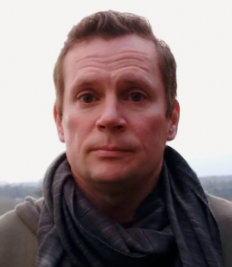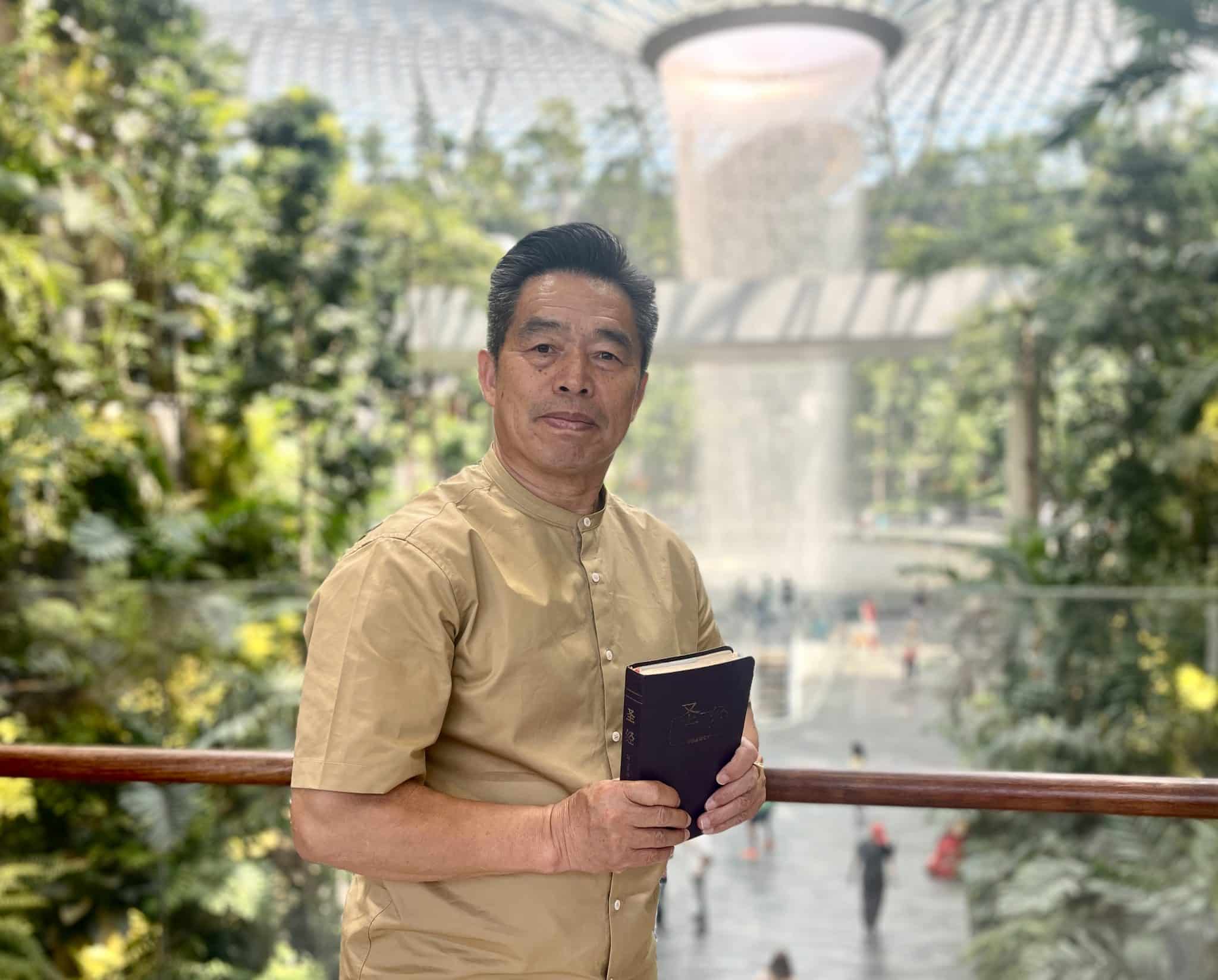What is our Christian testimony in this pandemic?
Jason Mandryk // June 23, 2021, 2:20 pm

"It is difficult enough in what passes for normal times to engage those whose political convictions differ from our own with kindness, patience, empathy and even love," says Jason Mandryk. "How much more so when face-to-face engagement has ceased?" Photo by Chuttersnap on Unsplash.
Social sciences and market research indicate that it takes five positive experiences to counterbalance one negative one, and that 40 positive customer experiences are needed to offset one negative online review.
The Kingdom of God cannot be reduced to a public relations exercise. But, as its ambassadors, we nevertheless have much work to do!
The world is watching
I daresay that, in the Western world at least, it is watching mostly in the hope that some prominent Christian will do or say something that can be construed as either stupid or malevolent or both.
But watching it is.
How Christians speak, act, and live during the pandemic is going to be how the world interprets Christianity. The man is the message.
How can our conduct effectively communicate the beauty of Jesus to a world where many actively want us to fail?
And while we cannot expect anything by way of grace from the secular media, the public words and conduct of some Christians in the West have been an embarrassment to the name of Jesus.
Sometimes, the motives for these incidents are actually good ones, and that adds to the agonising difficulty of such incidents.
A desire to pastor and pray for those who are suffering. A desire to meet together for fellowship and comfort. A desire to be a counterpoint of faith in a time of fear. These are all commendable things.
But what does it mean to be salt and light? What does it mean to love our neighbours as ourselves?
How can our conduct effectively communicate the beauty of Jesus to a world where many actively want us to fail?
Loving others who hold different convictions
The intersection of politics and faith is more delicate and controversial a matter than ever, at least in some countries.
Unfortunately, political polarisation usually increases in times of crisis, and civility usually decreases. This need not be so in the Church, but it is too often the case.
The intersection of politics and faith is more delicate and controversial a matter than ever.
It is difficult enough in what passes for normal times to engage those, whose political convictions differ from our own, with kindness, patience, empathy and even love.
How much more so when face-to-face engagement has ceased, when physical community has hit the pause button, and when we can digitally sink comfortably into our filter bubbles and echo chambers?
Can Christians be better than this?
Of course we can – the power of Jesus has been transforming people for 2,000 years!
But we must be willing to be transformed by the renewing of our minds, no longer fitting into the world’s mould (Romans 12:1).
Generosity is part of revival
Hopefully, this crisis will expose for all to see the spiritual bankruptcy of those who gratuitously peddle the prosperity gospel.
The relentless march of Covid-19 through churches seems to disregard any “name it and claim it” faith that purports immunity to viruses in this fallen world.
How Christians speak, act and live during the coronavirus pandemic is going to be how the world interprets Christianity.
Thankfully, we can point to a far greater number of selfless initiatives and acts of kindness by Christians that capture the spirit of Matthew 25:40: “And the King will answer them, ‘Truly, I say to you, as you did it to one of the least of these my brothers and sisters, you did to me.’”
The power of Jesus has been transforming people for 2,000 years!
James 1:27 (NIV) states: “Religion that God our Father accepts as pure and faultless is this: to look after orphans and widows in their distress and to keep oneself from being polluted by the world.”
Many, many congregations are demonstrating God’s love for the poor through compassionate action.
In much of Western society, Christian leaders are painted by non-believers as venal and avaricious. The motivations of virtually any pastor or Christian public figure are assumed to be greed and power.
We have the opportunity to demonstrate a spirit of generosity in this season of economic recession and global crisis.
Whether in the local shopfront church and soup kitchen, or on the far-off mission field, whether to friends and neighbours in need, or to global initiatives, Christians have an opportunity to demonstrate a spirit of generosity in this season of economic recession and global crisis.
We are not meant to pridefully put it on display to stoke our own egos, but we are to let our light shine before men so that they may see our good deeds and glorify our Father in heaven (Matthew 5:16).
We know how the believers had all things in common and were “selling their possessions and distributing the proceeds to all, as any had need”. (Acts 2:44-45)
This generosity was bookended by many signs and wonders being done, by awe upon every soul, by warm fellowship at the temple and in homes, and by Christians having favour with all the people and God adding to their number day by day.
Generosity is part of revival!
Generosity is a testimony that Jesus has transformed us such that we can give liberally and with joy.
Moreover, in Acts 11:27-30, we see the Church in Antioch respond to a global famine by exercising generosity to their less affluent brethren in Judea. Paul’s own ministry prominently featured taking up a collection from Gentile churches to present to the poor believers in Jerusalem.
What became of this collection is not known for certain, but it certainly appears to be high among Paul’s priorities.
I am convinced that Christians being radically generous to our brothers and sisters in need is a powerful witness of the good news to the unbelieving world.
It is a testimony to the reality that we are truly part of a global family of faith.
It is a testimony that we are not obsessed with the pursuit of wealth or controlled by mammon.
It is a testimony to our freedom in Christ, that Jesus has transformed us such that we can give liberally and with joy.
It is a testimony that we belong to a cause that is much greater than ourselves, for which we surrender our own ease.
This excerpt was republished from Global Transmission Global Mission: The Impact and Implications of the Covid-19 Pandemic with permission from Operation World. Click here to read the full article.
MORE STORIES ON OFFERING HELP AND HOPE:
Business down by up to 97%, yet these restaurant owners are still giving to the community
Break my heart, Lord, for what breaks yours: Refugees, missions and you
A note from the author
Given the restrictions of lockdowns in Operation World team members’ countries, we started the online practice of praying for the nations together. We were following the OW prayer calendar, which allows people to pray for every nation over the course of a calendar year.
Given the urgency and severity of the Covid-19 crisis in many countries, we felt that it would be good to pray into such needs.
The best way to do that, of course, was to hear from believers on the ground: local pastors, teachers, researchers, intercessors, and missionaries. The same type of people who are irreplaceable in our process of publishing all of the OW prayer material.
We began to receive input from these brothers and sisters, and felt that we shouldn’t keep such valuable and timely prayer material to ourselves. Our good friends Arley and Johnathan quickly turned these prayer points into a website.
As a result of the new website and the material therein, I was asked to submit a short article to a publication about how the worldwide Church – and world mission in particular – was being affected by the unfolding global pandemic.
Working on that article, I began to process the many thoughts, feelings, and convictions that had come upon me as I worked my way through countless articles, reports, analyses, testimonies, and pleas for prayer.
OW has the privilege of being connected to Christian leaders and international networks in the spheres of mission, research, prayer, and beyond, involving people in and from virtually every country on Earth. We were able to invoke a stunning array of wisdom and information from our brothers and sisters in Christ – global insight from a global body.
The perspectives shared by our brethren in these networks challenge our assumptions, stretch our perceptions, extend our horizons, expose our culture-bound biases, and build our faith. It is so good to be a part of a worldwide family.
This is an attempt to construct a framework offering a holistic view of how Christian faith and practice and the coronavirus are connected.
Amidst all the details, I was constantly drawn back to questions Brian Mills, a mentor in intercession, taught me to ask: “What is God saying in all of this?” and “What does God want to accomplish out of all of this?”
It was good to be reminded of 1 Thessalonians 5:21: “Test everything; hold fast what is good.”
The very attempt, however incomplete, to weave all these threads together has been an incredibly helpful and rewarding process for me. I hope that the outcome will prove helpful for you, too.
There is arguably a degree of folly in writing about such a complex subject while events are still unfolding, and while the reactions by governments, churches, and missions are still evolving.
Yet it is worth thoughtful examination and prayer-filled response – not just once, but regularly.
If government bodies are meeting daily to assess and shape responses to Covid-19, then those in ministry will probably need to take an approach that requires routine re-engagement with the endless news cycles in our fast-changing world.
We are an independent, non-profit organisation that relies on the generosity of our readers, such as yourself, to continue serving the kingdom. Every dollar donated goes directly back into our editorial coverage.
Would you consider partnering with us in our kingdom work by supporting us financially, either as a one-off donation, or a recurring pledge?
Support Salt&Light




